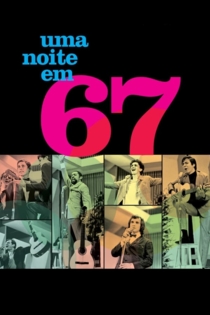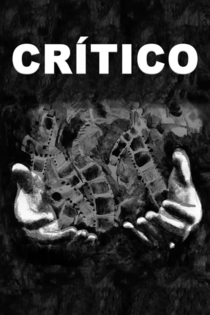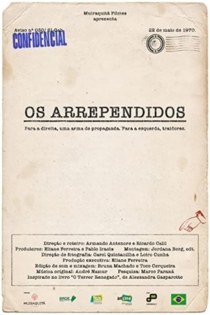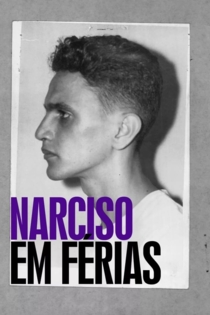
Ricardo Calil
2021Cine Marrocos
Ricardo Calil
Ricardo Calil, Ivo Müller
For two decades, Cine Marrocos, a movie theatre in the heart of São Paulo, was one of the most popular and opulent of the city. After it was closed, in 1972, it was occupied by a homeless workers' movement. The documentary tells the story of the people who lived there, alternating scenes from an acting class with those of the movies exhibited there in the past.
Cinema Morocco

Uma Noite em 67
Renato Terra, Ricardo Calil
Caetano Veloso, Sérgio Ricardo
If you thought TV shows in which audiences and juries judge musical acts were a relatively new phenomenon, you'd better think again. In the 1970s, such "festivals" were incredibly popular in Brazil. They were recorded before a live studio audience, and usually featured a number of elimination rounds. They also formed the springboard for the career of many a big-name star, such as Chico Buarque, Caetano Veloso, Roberto Carlos and Gilberto Gil. Appearing on such a program was no cakewalk, however: audiences could be as wild in their condemnation as in their appreciation of an artist. Extensive archive footage (including performances and behind-the-scenes interviews) from a turbulent final of the Festival of Brazilian Popular Music one evening in 1967 paints a fascinating picture, not only of the transformation of Brazilian music into real "festival" music, but also of a society starting to buck against the yoke of military rule.
A Night in 67

Crítico
Kleber Mendonça Filho
Aki Kaurismäki, Alain Riou
Seventy critics and filmmakers discuss cinema around the conflict between the artist and the observer, the creator and the critic. Between 1998 and 2007, Kléber Mendonça Filho recorded testimonies about this relationship in Brazil, the United States and Europe, based on his experience as a critic.
Crítico

Os Arrependidos
Armando Antenore, Ricardo Calil
In 1970, at the height of repression by the military dictatorship, five imprisoned guerrillas came to the public to renounce the armed struggle and praise the regime. With the repercussion of the declarations, the government decided to transform the retractions into a State practice. He started to torture opponents to make mea-culpa. Until 1975, around forty prisoners participated in the “repentances”, as they became known. Os Arrependidos recounts the little-remembered story of former militants who, very young, dropped everything to risk their lives for a cause, were arrested and tortured, and became a propaganda weapon for their enemies.
The Repentants



